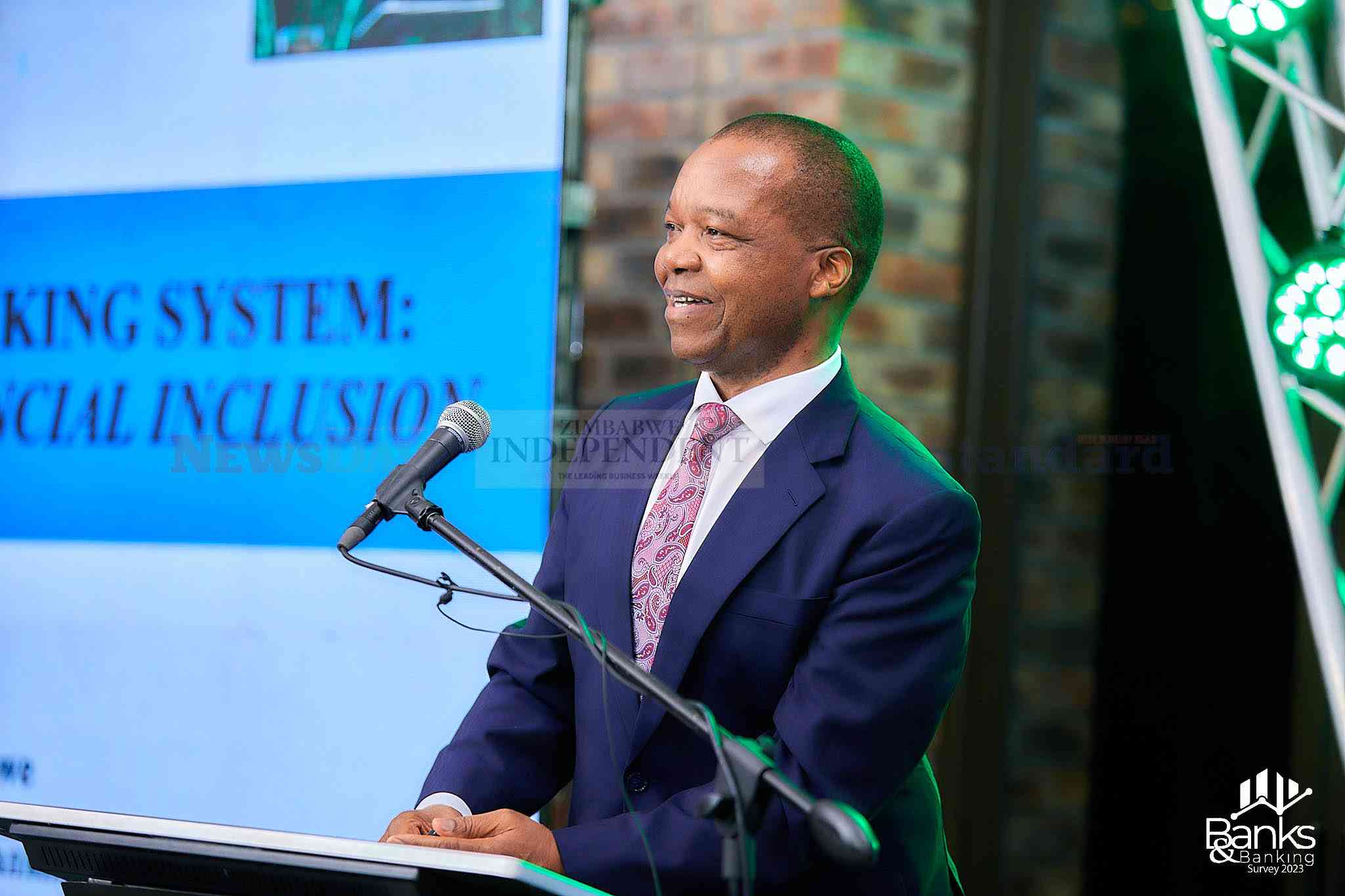
THE Reserve Bank of Zimbabwe (RBZ) governor John Mangudya has implored financial institutions to introduce ‘no frills accounts’ to attract informal market players, who he said are currently contributing more than 40% to the country’s gross domestic product.
A “no frills account” is defined as a type of bank account that requires an individual to maintain a negligible or no minimum balance along with following some simple know-your-customer norms.
He said banks should work on reducing bank charges to attract informal players into depositing their monies in the financial institutions.
Last year, the RBZ’s FinScope micro, small and medium enterprises (MSME) survey revealed that the informal sector had an estimated annual turnover of US$14,2 billion and an US$8,6 billion gross domestic product valuation.
Based on these figures, the central bank estimated that there was over US$2 billion circulating in the informal sector at any given time.
As of June 2023, there was ZW$14,66 trillion or US$2,55 billion deposited in the banks, therefore, if the informal sector’s US$2 billion was converted into local currency at the same time, there was at least ZW$11,47 trillion unbanked.
“Let us enhance low-cost accounts that will commiserate with the profile of different customers to move away from the one-size-fits all concepts,” Mangudya said at the 2023 Banks and Banking Survey in Harare last week.
The survey is run by the Zimbabwe Independent in partnership with First Capital Bank.
- RBZ blocks Harare US dollar charges
- Industry cries foul over new export surrender requirements
- One stitch in time saves nine
- Banks keep NPLs in safe territory
Keep Reading
Mangudya continued: “What are we saying? We are saying, as banks, the money is in the informal sector. But, how do you take that money from the informal sector into the banking sector?
“We need to ensure that you have got low-cost accounts, the no frills account. Why? Because this money can come to the banks.
“If you only hammer them (informal traders) with bank charges, at the end of the day, what happens is that they won’t bank that money and you will then chase the zero. We need to ensure that as a deliberate focus. Let us enhance this area.”
The Reserve Bank of India created a ‘no frills account’ in 2005 to serve those with modest incomes who lacked access to traditional banking services considering the Asian country’s large informal sector.
Withdrawals, debit cards, and other services are all free to use under such types of accounts.
High banking fees remain as one of the reasons why local informal players opt out of banking their money along with having low confidence of failing to access it once their money is in the system.
“For example, we spoke about tobacco. Tobacco is an all-year-round product or crop. You only earn from it for maybe three months but for the whole other nine months there is no money, so you need to profile your customers,” Mangudya said.
“You need to say ‘this is an SME, and he only earns money quarterly’ so it means your charges should also be quarterly as opposed to charging them every month.
“Like, I see charges of US$10 or US$20. But, let us motivate the depositor so that there is a commiserate profiling of the customer and bank charges. Why can’t you also come up with pay as-you-go low-cost accounts?”
The RBZ boss likened it to having a cell phone whereby you are only charged by the telecommunication carrier when you message or phone someone.
“Why don’t you review bank charges to ensure that if you use it there are charges and if you don’t, you don’t get any charges.
Alternatively, to say that for up to 10 transactions in a month or quarter, there are no charges,” Mangudya continued.
“By doing so, money stays in the bank. So, if I put US$100 today (as an example) there are no charges but if I transact maybe, you can give that person two or three transactions for free.”
He said banks needed to find incentives to ensure that the money which was in the informal sector gets back into the formal channels.







